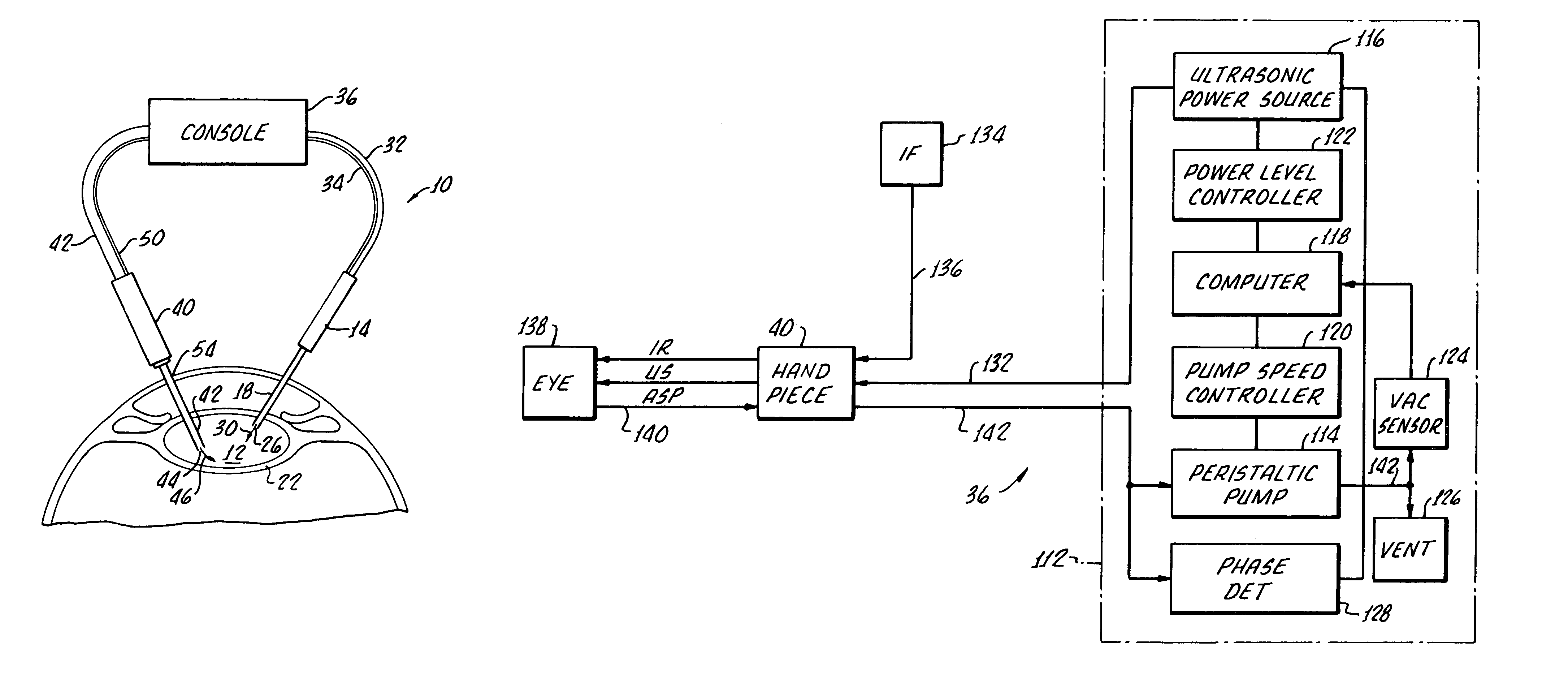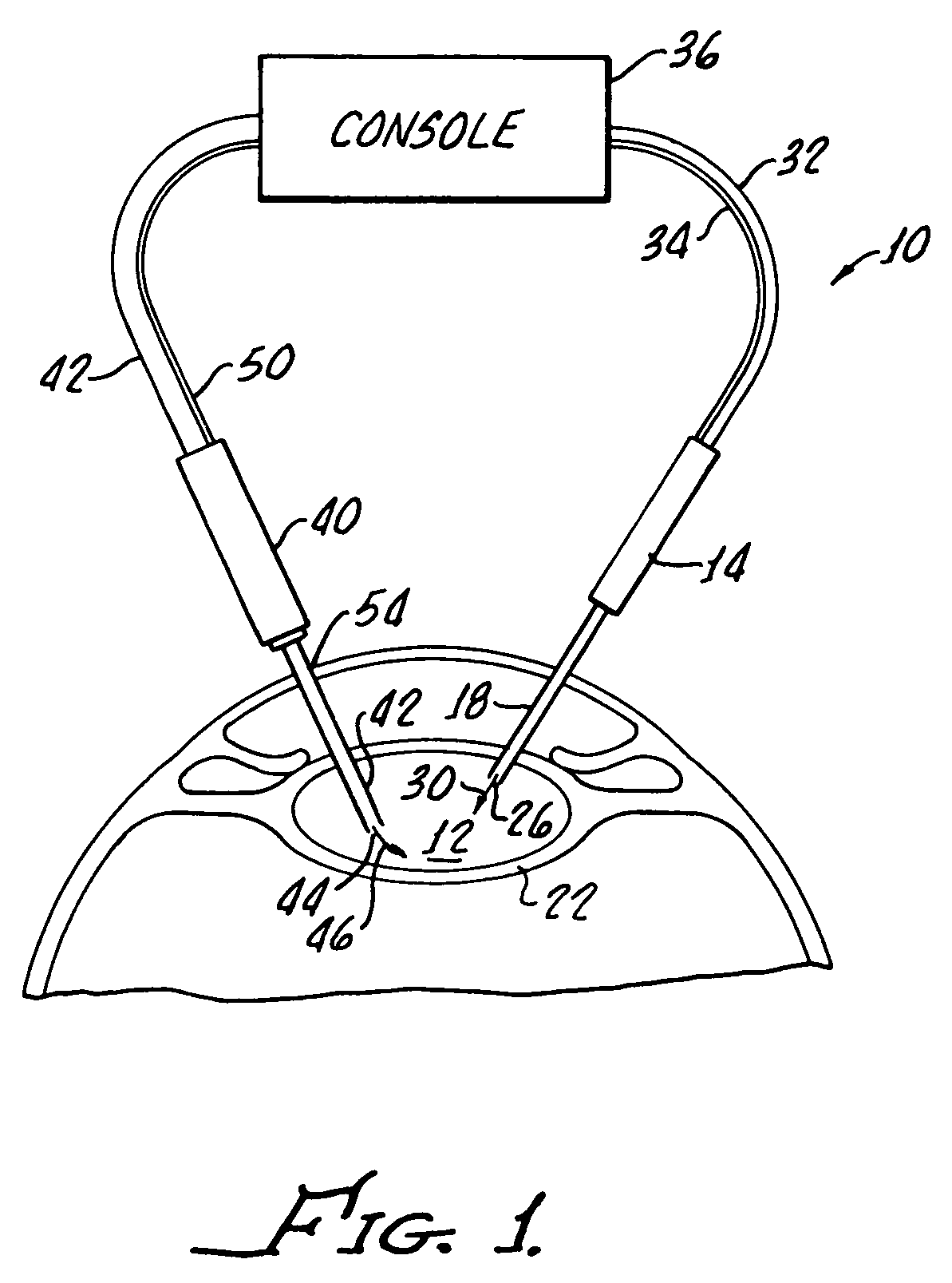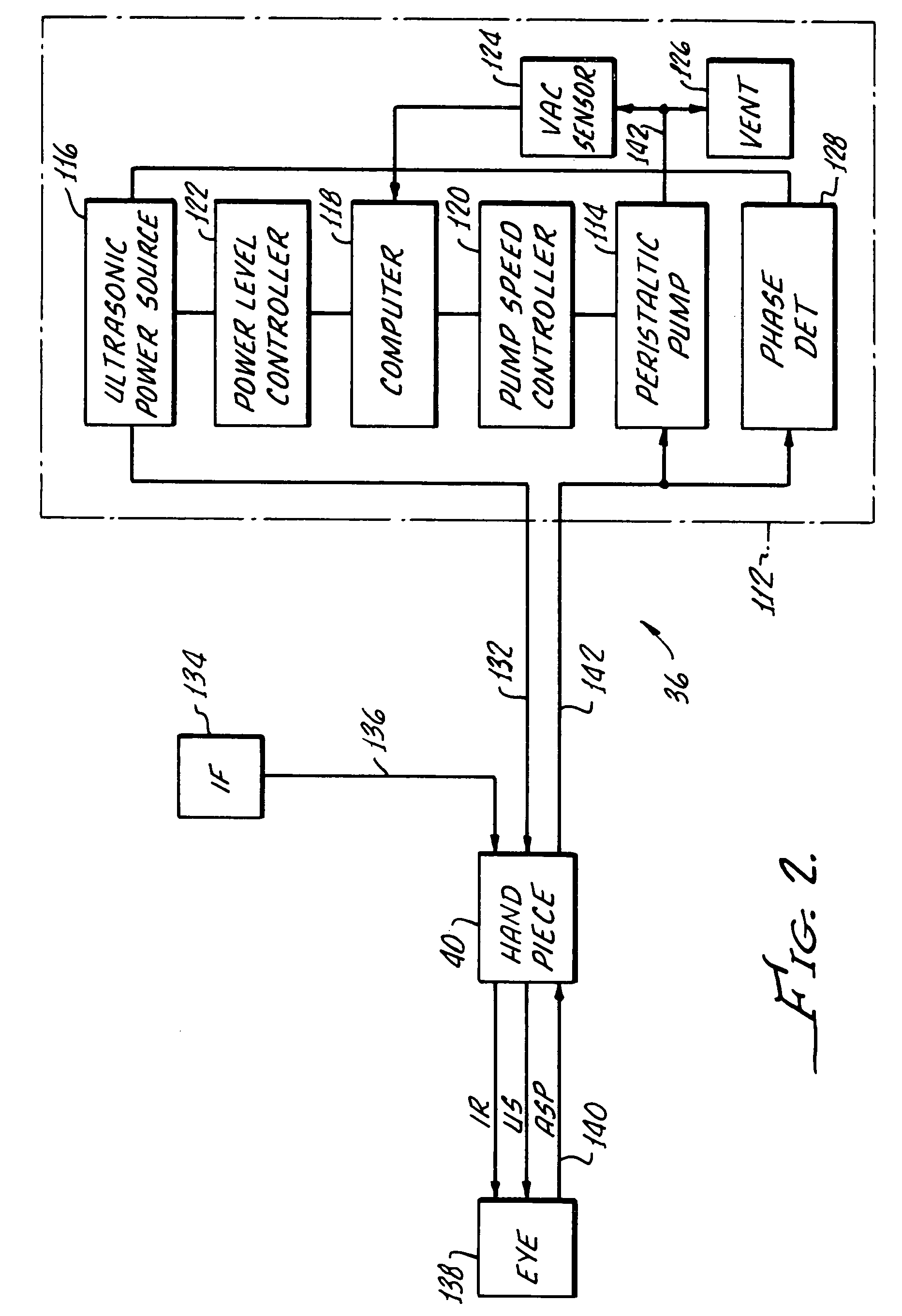Cataract extraction apparatus and method with rapid pulse phaco power
a cataract and extraction apparatus technology, applied in the field of cataract extraction apparatus and extraction method with rapid pulse phaco power, can solve the problems of retinal or sclera tissue damage, interference with proper transmission and focusing of light, and immediate area in front of the needle roiled
- Summary
- Abstract
- Description
- Claims
- Application Information
AI Technical Summary
Benefits of technology
Problems solved by technology
Method used
Image
Examples
example 1
38 KHz Operation
[0083]
Period of 1 clock cycle=1 / F@ 38 KHz=26.32×10−6S
Portion of one period for I=90 degrees=26.32×10−6S / 4=6.59×10−6S
Integrator output for one reference cycle=(150×10−3V / S)×(26.32×10−6S)=3.95 Volts
Integrator output from 90 degree cycle duration=(150)×103V / S)×(6.59×10−6S)=0.988 Volts
Resulting Numerical count from A / D converter=3.95 Volts / 256 counts=0.0154 Volts per count
Actual Number of A / C counts for 90 degrees at 38 KHz
example 2
47 KHz Operation
[0084]
Period of 1 clock cycle−1 / F@ 47 KHz=21.28×10−6S
Integrator output for one reference cycle=(150×103V / S)×(21.28×10−6S)=3.19 Volts
Integrator output from 90 degree cycle duration=(150×103V / S)×(5.32×1010−6S)=0.798 Volts
Resulting Numerical count from A / D converter=3.19 Volts / 256 counts=0.0124 Volts per count
Actual Number of A / D counts for 90 degrees at 47 KHz=0.798 / 0.0124=64 counts
[0085]A plot of phase angle as a function of frequency is shown in FIG. 11 for various handpiece 40 loading, a no load (max phase), light load, medium load and heavy load.
[0086]With reference to FIG. 12, representing max phase mode operation, the actual phase is determined and compared to the max phase. If the actual phase is equal to, or greater than, the max phase, normal aspiration function is performed. If the actual phase is less than the max phase, the aspiration rate is changed, with the change being proportionate to the change in phase.
[0087]FIG. 13 represents operation at less than ...
PUM
 Login to View More
Login to View More Abstract
Description
Claims
Application Information
 Login to View More
Login to View More - R&D
- Intellectual Property
- Life Sciences
- Materials
- Tech Scout
- Unparalleled Data Quality
- Higher Quality Content
- 60% Fewer Hallucinations
Browse by: Latest US Patents, China's latest patents, Technical Efficacy Thesaurus, Application Domain, Technology Topic, Popular Technical Reports.
© 2025 PatSnap. All rights reserved.Legal|Privacy policy|Modern Slavery Act Transparency Statement|Sitemap|About US| Contact US: help@patsnap.com



